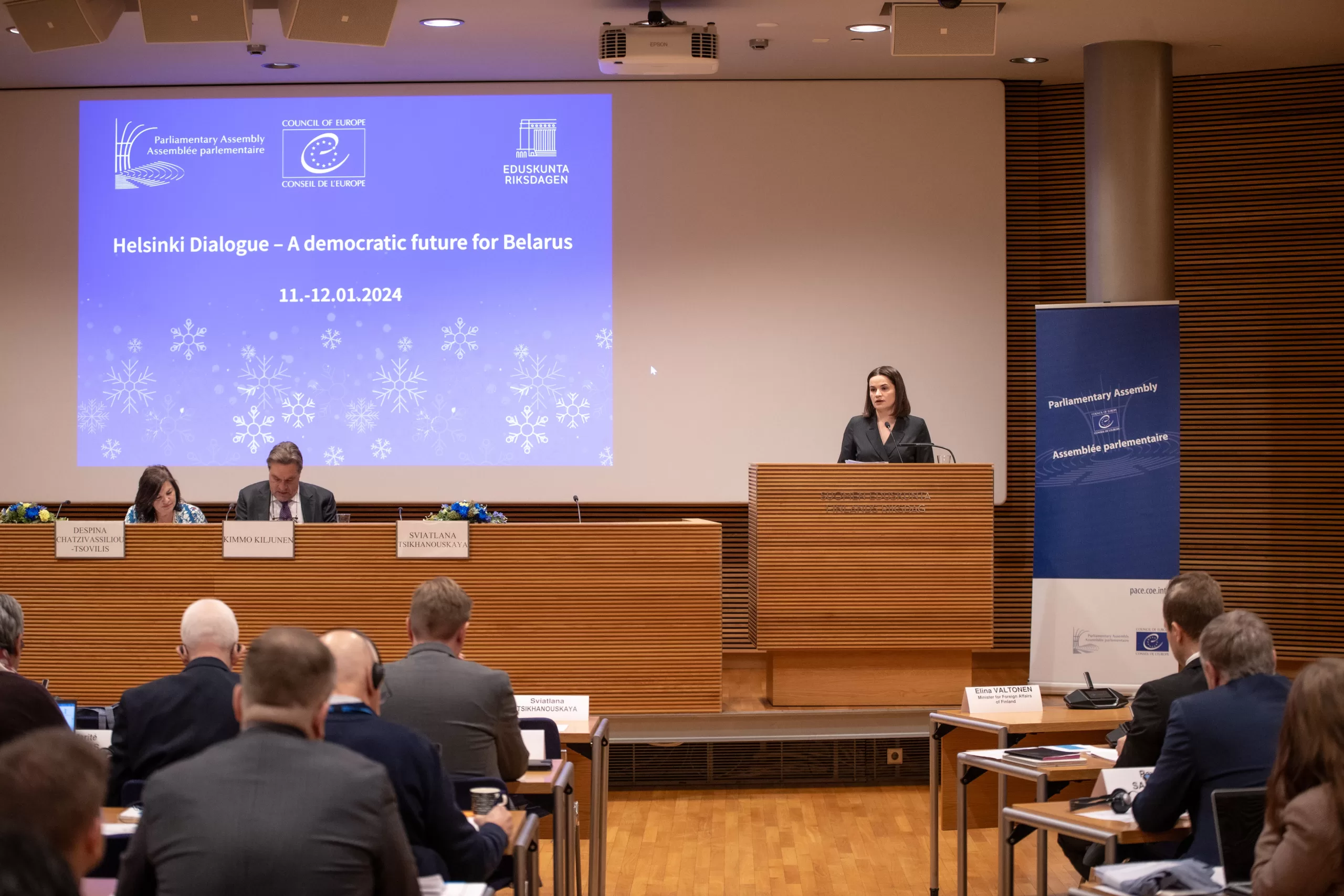The two-day Finland-Belarus conference concluded in Helsinki, organized by the Office of Sviatlana Tsikhanouskaya, the United Transitional Cabinet, the Council of Europe, the PACE, and the Ministry for Foreign Affairs of Finland. The event was attended by Finnish and European politicians, members of the PACE, and representatives of the Belarusian civil society, political parties, and media. In total, the conference brought together about 150 participants.
Sviatlana Tsikhanouskaya delivered opening remarks, in which she called for preparing for a new window of opportunities for democratic Belarus and emphasized that it should not be missed. The conference was also attended by the Secretary General of the Parliamentary Assembly of the Council of Europe, Despina Chatzivassiliou-Tsovilis, who noted that Belarus is a priority for the Council of Europe. Belarusian parties are already participating in the work of the Assembly, and the Office of Democratic Forces is open in the building of the Parliamentary Assembly.
The conference included six thematic panels: the role of Belarus in regional security, national identity, political prisoners, support for the democratic movement, the so-called “election” to the parliament in Belarus in 2024, and the election to the Coordination Council.
- Valery Kavaleuski, the Foreign Affairs Representative of the United Transitional Cabinet, participated in the discussion on the role of Belarus in regional security, where he noted that the current priority is to prevent Belarus from further involvement in the war and decrease its dependence on Russia. The discussion also focused on possible steps by the international community and scenarios for the liberation of Belarus.
- During the discussion on national identity, Franak Viacorka, Sviatlana Tsikhanouskaya’s Senior Advisor, spoke about Russia’s policy of Russification and colonization of Belarus. He also emphasized the need to support Belarusian cultural projects and education. Artur Michalski, the Polish Foreign Minister’s Plenipotentiary for Cooperation with Belarusian Democratic Forces, stated that Belarusian national identity is inclusive, while Belarusians historically belong to Europe.
- The discussion on political prisoners involved the Swedish Envoy for Relations with Democratic Belarus, Christina Johannesson, representative of the PACE, Thórhildur Sunna Ævarsdóttir, as well as human rights defenders, Pavel Sapelka (Viasna HRC) and Tatsiana Khomich. The speakers discussed ways to achieve the release of political prisoners, noting that their real number significantly exceeds the official figures.
- The discussion on support for the democratic movement featured the Head of the Mission Of Democratic Belarus in Brussels, Ambassador Vladzimir Astapenka, Finnish expert Grigory Nizhnikov, representative of Press Club Belarus Natalia Belikova, and Estonia’s Special Representative for the Belarusian Democratic Forces, Marko Koplimaa. The participants discussed the issues faced by civil society, pressure on the regime, and ways to hold its accomplices accountable. The discussion also addressed the need for cooperation with technology companies and a new coordinated Western strategy vis-a-vis Belarus.
The last two panels focused on elections: participants discussed the so-called “election” to the regime’s parliament scheduled for 2024 and the election to the Coordination Council. Anatoli Liabedzka, Sviatlana Tsikhanouskaya’s Advisor for Interparliamentary Cooperation, called for promoting the non-recognition of the regime’s “election” at the international level, noting the need to provide Belarusians with an alternative positive vision for the future.








